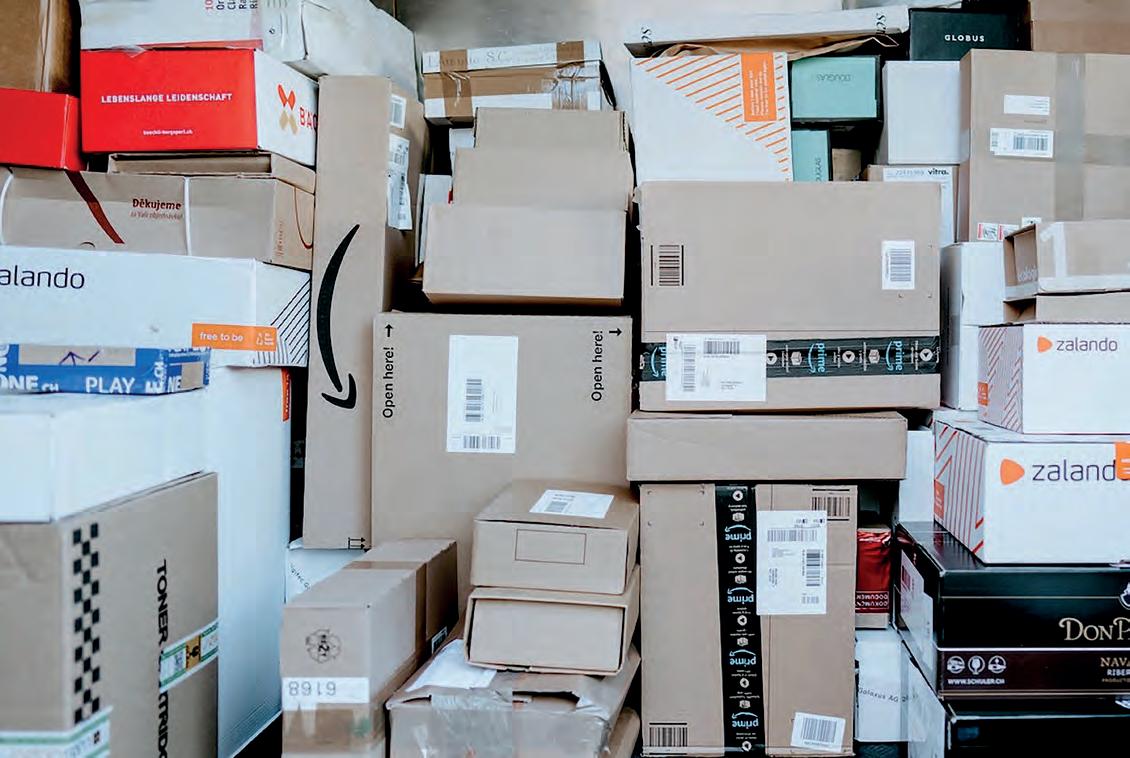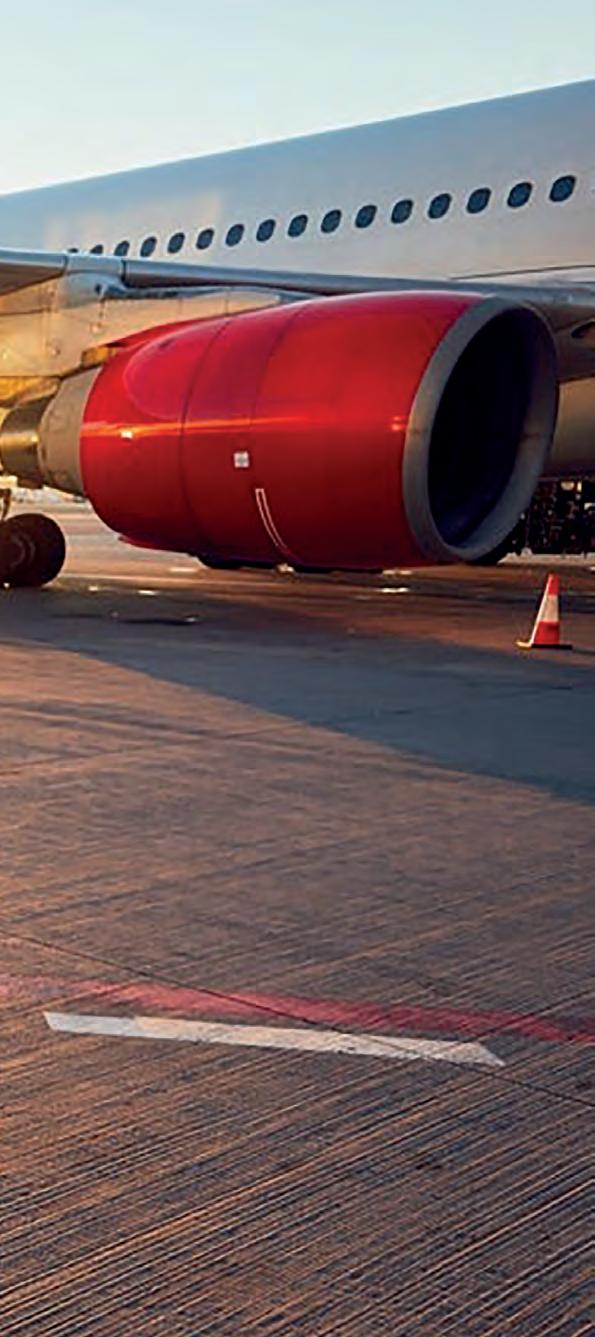
3 minute read
E-COMMERCE DRIVES CHANGES IN THE AIRFREIGHT INDUSTRY
The e-commerce industry has been on a high the past few years, with unprecedented growth in the sector sending air cargo demand to an all-time high during the Covid pandemic. Alongside the financial gain this boom brought, it can be argued it has had a bigger impact in the way it has reshaped and even revolutionised the way logistics companies operate. As online retailers and customers have looked for faster, even same-day deliveries, carriers have had to adapt to speed up the pace of their transportation.
It’s no surprise, therefore, that the air cargo industry has benefited from the growth of e-commerce and the demands it requires, due to its key benefit of offering speed and reliability. Over 20% of all airfreight moved around the globe is from e-commerce and that isn’t set to drop since online sales are still riding higher than prepandemic levels at over a quarter of the overall retail market.
Advertisement
“Covid has accelerated our lifestyles to a pivot point where shopping online has been normalised across all demographics, and there’s no going back. With that, e-commerce is set to take a growing proportion of total consumer spend,” Kawal Preet, president of the Asia Pacific, Middle East and Africa (AMEA) at FedEx Express, said.
Key markets
Asia Pacific includes some of the world’s biggest e-commerce markets, such as China, India, Korea and Japan. Estimated revenue from e-commerce sales across those countries is over USD $2 trillion, with 57% of their citizens shopping online. This region is only expected to secure greater swathes of e-commerce activity, with Malaysia, the Philippines and Vietnam optimistic about potential growth in the coming years.
“e-commerce has grown in popularity and familiarity among merchants and consumers in Asia since the Covid-19 pandemic. More small businesses are coming online to cater to a wider group of consumers, including new Internet users who have just hopped on the e-commerce bandwagon,” Ken Lee, CEO, DHL Express Asia
Pacific excluding China, said.
New services
The strength of the e-commerce industry is seen in the recent move by Zongteng Group partnering with Worldwide Flight Services (WFS) to bolster its Sino-European e-commerce cargo capacity. With the provider of cross-border logistics services introducing the new Shenzhen-Paris freighter route, it will bring an additional 15,000 tonnes of annual cargo capacity for the e-commerce space. This is set to be followed by a second Boeing 777F in Q3 of 2023, adding a projected 28,000 tonnes per annum.
With a reported turnover of €3.85 billion, Zongteng Group has been a clear beneficiary of the growing e-commerce market, providing logistics services through its sub-brands YunExpress, Elogistic and Worldtech. “The strong growth in demand for crossborder e-commerce capacity from China to Europe requires more cargo capacity as well as the support of fast and reliable handling on the ground in order to meet customers’ service expectations,” Laurnet Bernard, VP Cargo France at WFS, said following the partnership.
Green Pound
Sustainability is a growing factor across the logistics industry, with all stakeholders, from carriers to retailers taking steps to improve their environmental credentials. There is a clear need to adapt operations as the industry grows, as, on a basic level, more sales mean more more deliveries. As orders taking too long is the number one pain point for consumers, who typically expect delivery within three days to one week, there is a desire for delivery to be faster. With the added challenge of meeting the time constraints placed on shippers, on occasion, some shippers are forced to send out partially filled frieghts leading to more trips and more emissions.
Customers are becoming increasingly understanding of the challenges around sustainability, shown in their willingness to invest their own money in helping companies reduce their carbon emissions. Forrester found that 57% of consumers look to support companies that have clear sustainable objectives, this number rises in Gen Z and Gen X shoppers. Even though household budgets are being squeezed during the cost of living crisis, online shoppers are willing to pay a premium for greener deliveries, with ParcelHero predicting this will become the norm.
Digital Integration
As technological innovation sweeps through the logistics industry, companies that facilitate the movement of e-commerce products globally are turning to new systems that help to improve the speed and efficiency of their delivery services. Traditional and digital worlds are now coming together, forcing companies to transform into modern services or be left behind and lose market share to their competitors.

For those in the airfreight industry, for example, bringing together the two different systems for mail items and cargo can help to enhance visibility through bookings and allocation, offering volumetric information and tracking options. At a time when there is greater interest in being able to follow cargo from when it’s shipped to when it lands on the doorstep, this is an attractive ability.
Digitalisation can also help to streamline the delivery process by simplifying the bureaucratic process, replacing the myriad of paper and electronic documents currently needed with one simple, digital shipment record. This can speed up the time cargo spends on the ground, moving it faster from the aircraft to the next step in the delivery process.
“Accelerating digitalisation, developing real-time interaction, testing drones and robots, implementing sensors and data loggers, making sense of Big Data, developing new screening technologies…will enable the air cargo industry to adapt, respond and anticipate what e-commerce needs,” the International Air Transport Association added.











